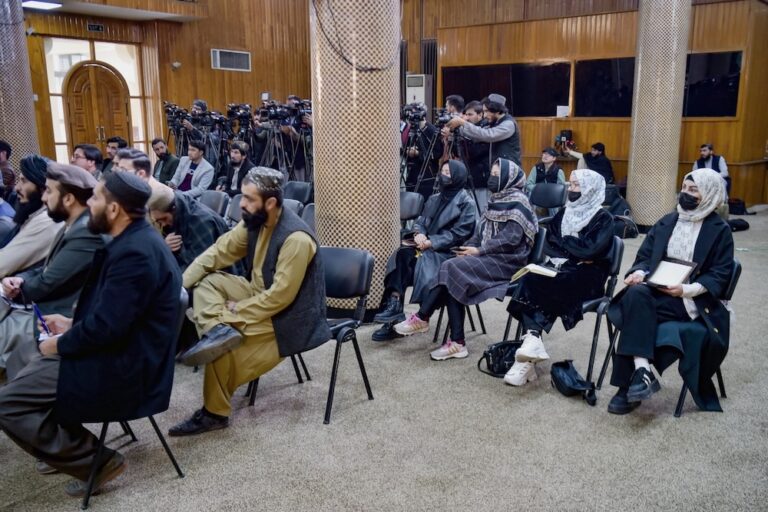The forum, held on 12 October 2011, was jointly organised by the Southeast Asian Press Alliance (SEAPA), the Thai Netizen Network and iLaw, to discuss the state of online freedom of expression in Thailand.
(SEAPA/IFEX) – 14 October 2011 – Bangkok, Thailand – Full intermediary liability should not be an approach to mitigating unlawful content over the Internet as it ignores the liability of individuals actually responsible for such content, said an expert from the New York-based Committee to Protect Journalists (CPJ), Danny O’Brien.
Speaking at a forum organised on the sidelines of the ongoing trial of Prachatai.com webmaster Chiranuch Premchaiporn, O’Brien said holding intermediaries liable also harms the online economy by placing an undue burden on the industry players who contribute to and sustain such economic activities. “A free and open Internet is a vital element of a modern free press, and a modern free society,” he said.
The forum, held on 12 October 2011, was jointly organised by the Southeast Asian Press Alliance (SEAPA), the Thai Netizen Network and iLaw, to discuss the state of online freedom of expression in Thailand. The forum was organised following a postponement of the Premchaiporn trial to mid-February 2012.
As well as informing the public on the use of Thai laws that could curtail free speech, it aimed to “encourage the Thai government to reform the law in conformity with the international principles of human rights and standard practices”.
Other panel speakers included SEAPA campaign officer Kulachada Chaipipat and Asian Forum for Human Rights and Development (FORUM-Asia) executive director Yap Swee Seng.
O’Brien was a defence witness in Chiranuch’s trial and appeared in court briefly on 11 October. He submitted a written testimony to the court as the court-appointed translator was not able to adequately translate his testimony.
During the forum, O’Brien spoke on the structure of the Internet and the implications for intermediary liability. This is particularly relevant to the trial of Chiranuch, who is charged with 10 counts of violating the Computer Crimes Act (CCA) as an intermediary facilitating the posting of comments deemed defamatory to Thailand’s royal family.
He said the structure of the Internet differed greatly from the traditional print media format, where the content provider or publisher is at one end and the reader is at the other. Rather, information is copied and distributed over a web of computers, usually without the user’s knowledge. The essential nature of this structure meant that criminal liability for possession and distribution applied to all links in the chain of information, including ISPs (Internet Service Providers), search engines, and any user who unknowingly acted as a server to relay information.
He added that ISPs and content hosters like YouTube or Facebook could not be expected to actively monitor the vast volume of content that is posted to their websites. YouTube, for example, receives an average of 48 hours worth of video every single minute.
“The sheer number and interactivity of the number of comments means that editing or oversight in this sense is impossible,” O’Brien said, adding that the impossibility was explicitly reflected in the Internet laws of several countries, including the US and UK.
A better model for liability, he said, would be to acknowledge that comprehensive intermediary monitoring of content was impractical and to cooperate with the intermediary to remove unlawful content as soon as practicable, as Chiranuch immediately did after being advised of the unlawful content on the Prachatai forum.
FORUM-Asia’s Yap Swee Seng detailed concerns on freedom of expression raised during the Thai government’s submission of its Universal Periodic Review at the UN Human Rights Council. Of the 172 recommendations made by members of the United Nations, 72 are under consideration by the Thai government. Not a single recommendation on the subject of freedom of expression has been accepted at this stage.
Of particular concern was Thailand’s repressive laws on freedom of expression, particularly the Computer Crime Act (CCA), laws imposed by emergency decree, and Article 112 of the penal code.


